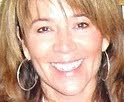 “I want a Facebook account, Mom,” my eleven-year-old said.
“I want a Facebook account, Mom,” my eleven-year-old said.Parents all around me were dropping like flies, saying yes to internet social networking for their children. I had known my time was coming, and now it was here.
I had asked other parents about their experiences. They had essentially said don’t be paranoid. Well-informed parents added, “It’s perfectly safe. They have privacy settings.”
“Everybody has one.” My own dear daughter was echoing all those parents I had canvassed. I wanted to say what my own mother had often said to me: “And if all your friends jumped off a bridge, would you?”
I had done a lot of research for my latest book, advice for mothers of tweens. When I set up a non-Facebook social network created for mothers and their tween daughters, I received many requests from perverts who included lewd pictures.
“No,” I said, thinking of all those pictures and suggestions I wished I could forget.
“Jessie has one.” Jessie is a close friend. “She’s only ten. Why can’t I have one?”
Much like political discussion, I doubted reading anything from the “other side” would change my mind. Still, I needed to at least give Addy a good reason. I decided to do what any person looking for answers would do. I googled Facebook.
Facebook is a social network site originally for college students that two years ago started welcoming anyone … except our 12 year old children and younger. Even Facebook thinks eleven-years-old is too young for its site.
Addy at bat, strike one.
But more than her age, because like your children, my daughter is a mature and savvy young lady, the privacy and safety issue bothered me. Reporter after reporter and Facebook staff assured me everything was under control and that it was up to the individual to set their privacy control features.
Ten points for Addy. No—make that nine.
In its favor, privacy isn’t an issue Facebook has ignored. According to a 2007 report filed by John O’Brien of LegalNewsLine.com, Facebook agreed to offer more protection to children. One of their promises in the wake of an undercover investigation led by New York state Attorney General Andrew Cuomo is to provide automatic warning messages if a child gives personal information to a non-network adult. Isn’t that kind of like shutting the barn door after the cows get out?
Not only that, but also Facebook said it would respond to complaints of abuse within 24 hours and within 72 hours would have a solution. In a prepared statement Facebook Chief Privacy Officer Chris Kelly said, "Building a safe and trusted online experience has been part of Facebook from its outset."
But how likely it is that Facebook can follow through with this plan? I can count the number of children under 13 using Facebook on more than one hand. Our children are only one click away from saying: “Yes, I am 13,” when in fact they are not.
Something else to be concerned about are the porn and adult ads that Facebook subscribers receive. Facebook has an answer for that, too. Not only will it require users under the age of 18 to confirm they have read and understood the safety tips, it will also get rid of links to adult theme sites for those users. I return to the “faking age” issue. How do they know?
Addy’s back up at bat. Strike Two.
Because I want to be fair—to Facebook and Addy—I decided to turn to an online safety website, WiredSafety.org. Don’t you just love Google.com? Founder and attorney Patty Aftab believes children can be safe using social networks. Still, as I read her website, I got the feeling she was talking about older children—not 10, 11 and 12 year olds. But even for older children, it appears to me Facebook deals with issues after the fact. Leaving tweens and teens to make adult decisions about safety also bothers me. And who reads all those online agreements anyway?
Addy’s still at the plate. Strike three.
If your child already has a Facebook, MySpace or similar account or will in the very near future, educate yourself. Aftab tells parents, “Talk with their children about not sharing personal information online.” She’s referring to anything personal like pictures, names and addresses. She also discourages mention of your school, the local mall, sport teams, cell phone numbers. Thing about this, though … maybe you can control what your child puts up, but how do you control the pictures and information friends upload to their profiles?
If you are not sure whether your child has accounts on networking sites, ask. Aftab says, “If you find that your child has a profile on a Web site, you should review it.” It’s not private like a personal diary. It’s there posted on-line for millions, if it’s a MySpace profile, to see.
She also tells us, “Just remember that the best filter is the one between your children’s ears.” Amen sister, amen. And though your child is learning to use the filter between her ears, if adults with much more life experience are deceitful, it might be too big of a challenge to face alone. While kids are learning the social rules, the best filter is the one between the parents’ ears.
Good news. Addy and I have found something almost as fun for her. She’s okay with my “no,” and is no longer pleading. It’s free, safe and appropriate for eleven years old. I’ll tell you all about the solution next week.
www.allynevans.com
www.allynevans.blogspot.com






